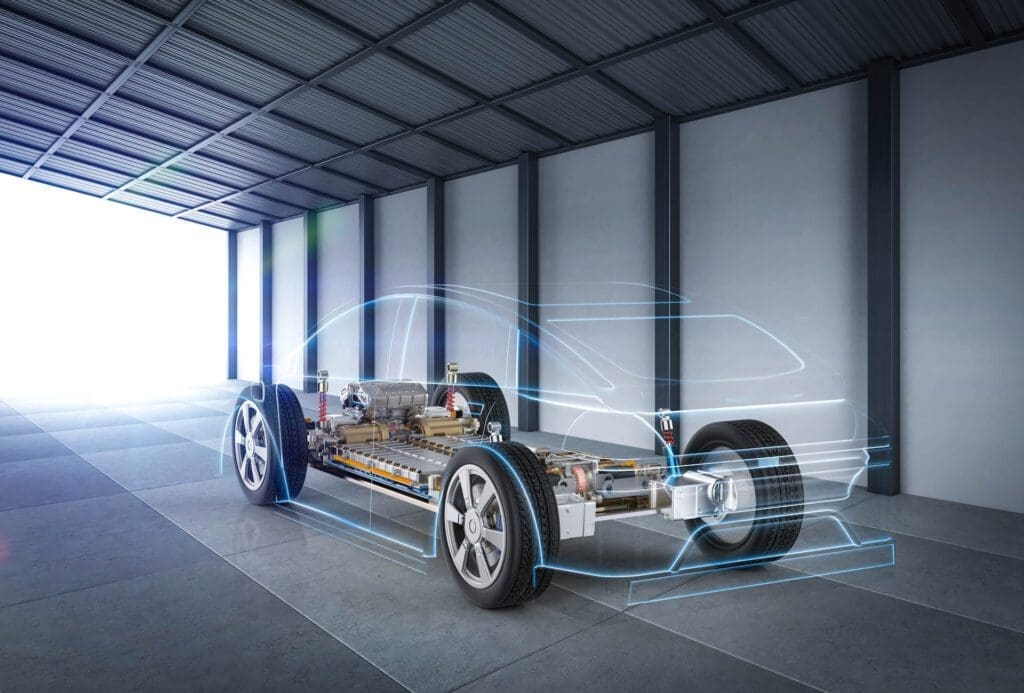With the advent of self-driving cars, the logistics industry isn’t far behind in terms of fully incorporating these kinds of vehicles into their fleets. Autonomous vehicles are unlike automatic vehicles because they have the ability to process and synthesize information, making decisions based on collected data.
As this technology becomes more abundant, it will become more prevalent in every aspect of our lives, including logistics. Preparing now for the changing market, being an early adopter of new technologies, and gaining insight and understanding into these things will help people make more informed decisions about the future of logistics. Next Exit Logistics is preparing now for these changes.
The Current State of Autonomous Vehicles
Currently, there are a great number of rules and regulations that truck drivers must adhere to in order to operate their vehicles. There are time constraints on how much they can drive, certifications that they have to receive, and much more. Autonomous vehicles could do away with much of that. While these self-driving trucks would still have to face a great number of changes and advancements before they’re totally feasible on the roads today, they have the ability to make a lot of jobs much easier. Driving a truck may seem like easy work, but it does take a major toll on the body. Autonomous vehicles could limit that damage or totally remove it.
Currently, air vehicles use a kind of autopilot once certain points in the path have been reached. When planes attain a specific altitude and are stable, there’s no need for the pilot to do all the work. They still monitor activity, but the heavy lifting is left to autopilot.
Uber currently works with a fleet of autonomous vehicles called Uber Freight. They’re currently operating in Texas along very limited routes but will later expand to the rest of the country. This opens up a lot of opportunities for more efficient freight and product movement. Einride is an example from Sweden. Businesses may engage this service to ship in ways that are more environmentally friendly and efficient.
Currently, the major limitations of these projects are data. For this solution to be successful, companies need a lot more data to safely and effectively transport freight. In order to refine the abilities of these vehicles, much more information needs to be gathered. Additionally, the question of legal responsibility needs to be sorted out before these programs are implemented widely.
The Potential Impact of Autonomous Vehicles on the Logistics Industry
There are a number of impacts that autonomous vehicles may have on the logistics industry. Job distribution is one concern regarding the usage of autonomous vehicle implementation. Additionally, right now, human safety drivers are still required in many cases. However, a great many impacts are positive.
Greater Efficiency
Efficiency is one of the greatest potentials for the logistics industry. Autonomous vehicles will be able to process data quicker than human minds and make decisions about travel routes and destinations, as well as decide on the most effective travel speed that will lead to a greater load and travel efficiency.
Greater Safety
More than 5 million car accidents happen each year, and while less than 1% of these are fatal, nearly a third of them result in injury. These are terrifying statistics. Autonomous vehicles have the potential to cut down on these accidents by eliminating the human error factor and decreasing the amount of damage that happens to goods as they’re transported.
Lowered Costs
One of the benefits of efficiency is lowered costs. With the ability to make judgments about time and energy costs, autonomous vehicles can maximize efficiency while reducing travel time and costs. This means freight can get there quicker and at a lower cost, keeping both you and the customer happy.
Counters Labor Deficit
There’s been a major need for truck drivers for several years. With the usage of autonomous vehicles, the deficiency of truck drivers can be partly recovered, and supply chain issues can be negated. In addition to this, truck drivers have time and distance limitations on driving, whereas autonomous vehicles would have fewer of those limitations.
Greener Logistics
Another thing to consider is the reduction of greenhouse gas emissions with more efficient logistics systems. Logistics already make a huge impact on the environment, and with more optimized and efficient transportation, carbon footprints will be lowered, and the potential for green logistics will be greater.
Preparing for the Autonomous Revolution in Logistics
When new technologies are introduced, it can be difficult to become an early adopter without knowing the benefits or the impacts of these technologies. However, it’s vital to understand that without innovation and risk-taking, industries cannot advance.
By investing in these innovations and assisting with research and integration, the industry gets the opportunity to advance and grow. Additionally, collaborating with companies that are developing autonomous vehicles and freight solutions will allow for advancements in autonomous fleet management.
Workforce Adaptation
As the industry begins to change, jobs will need to be shifted in order to meet new demands. Fewer human resources will be used driving the trucks, but there will still need to be a human element in order to maintain and observe the movements of autonomous vehicles. New training methods will need to be developed, and employees’ roles will likely shift and change while the industry grows and develops.
Autonomous warehouse solutions are already a major part of the logistics industry, so the integration of autonomous vehicles in warehouse operations are more simple now than ever. Autonomous vehicles have the potential to revolutionize an entire industry and assist in making positive, green changes to the logistics industry. Embracing change now assists in preparing for the future of logistics.
How Homeowners Can Benefit from the Autonomous Logistics Revolution
Businesses aren’t the only ones to benefit from the autonomous revolution — homeowners will too. Because of increased efficiency, individuals will be able to enjoy faster deliveries without paying extra for them. More efficient processes also mean that companies will pay less, and therefore, they’ll charge customers less, so prices will be lower. Furthermore, everyone can benefit from the environmental effects of autonomous logistics.
Next Exit Logistics Is Making Cutting-Edge Changes
For the future of the industry, the team at Next Exit Logistics is already making changes to integrate robotics in logistics to make positive advancements in a wide industry. Learn more about our shipping options today.
FAQs
How Will Autonomous Vehicles Affect the Efficiency of the Supply Chain?
Self-driving logistics systems have the potential to increase the efficiency of supply chains by making data-driven decisions that optimize fuel usage, travel time, and transportation routes.
What Are the Potential Challenges and Obstacles in Adopting Autonomous Vehicles in the Logistics Industry?
One major challenge is getting companies to adapt to these changes and begin integrating them into their operations. Additionally, getting the data needed to continue developing autonomous vehicles can be difficult. Finally, while many people today are concerned about companies taking a green approach to their operations, getting the public to accept these industry changes may be difficult.
How Can Logistics Companies Prepare for the Implementation of Autonomous Vehicles?
Investing in logistics companies developing these technologies and partnering with other companies will help businesses prepare for the coming changes that are sure to occur with autonomous vehicle implementation.




